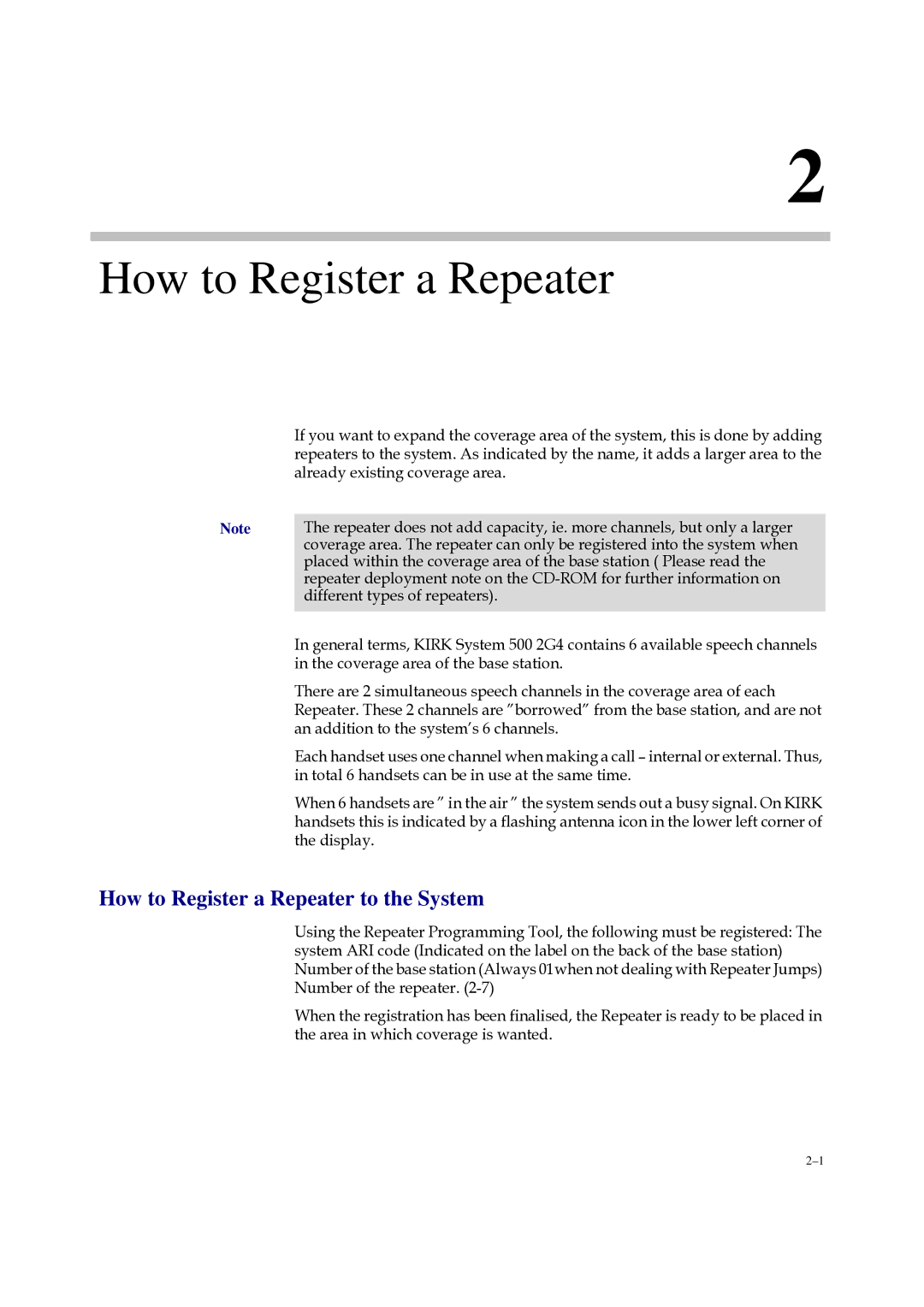2
How to Register a Repeater
| If you want to expand the coverage area of the system, this is done by adding |
| repeaters to the system. As indicated by the name, it adds a larger area to the |
| already existing coverage area. |
|
|
Note | The repeater does not add capacity, ie. more channels, but only a larger |
| coverage area. The repeater can only be registered into the system when |
| placed within the coverage area of the base station ( Please read the |
| repeater deployment note on the |
| different types of repeaters). |
| In general terms, KIRK System 500 2G4 contains 6 available speech channels |
| in the coverage area of the base station. |
| There are 2 simultaneous speech channels in the coverage area of each |
| Repeater. These 2 channels are ”borrowed” from the base station, and are not |
| an addition to the system’s 6 channels. |
| Each handset uses one channel when making a call – internal or external. Thus, |
| in total 6 handsets can be in use at the same time. |
| When 6 handsets are ” in the air ” the system sends out a busy signal. On KIRK |
| handsets this is indicated by a flashing antenna icon in the lower left corner of |
| the display. |
How to Register a Repeater to the System
Using the Repeater Programming Tool, the following must be registered: The system ARI code (Indicated on the label on the back of the base station) Number of the base station (Always 01when not dealing with Repeater Jumps) Number of the repeater.
When the registration has been finalised, the Repeater is ready to be placed in the area in which coverage is wanted.
